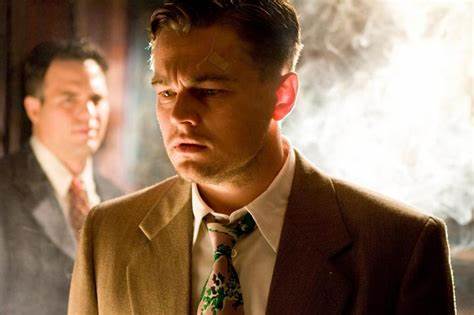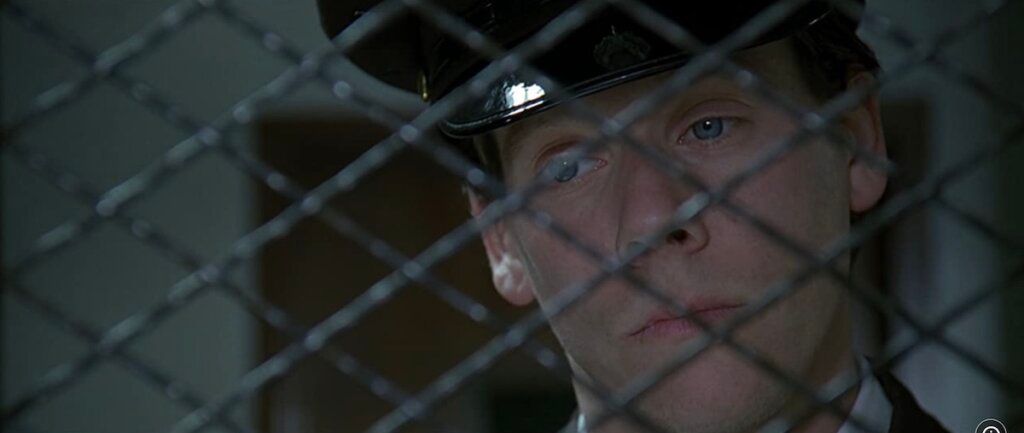
In the grand tapestry of Hollywood, where dreams are spun into celluloid and legends are forged under the incandescent glow of the silver screen, there exists a profound and enduring fascination with its brightest stars. Their lives, often lived in the public eye, shine with an unparalleled brilliance, captivating audiences with their talent, charisma, and undeniable mystique. Yet, beneath the glamour and the adulation, there frequently lies a more fragile reality, a susceptibility to the very human vulnerabilities that eventually touch us all, often in ways that are tragically sudden and deeply resonant.
Hollywood’s Golden Age, in particular, was an era of unparalleled artistic and commercial triumph, a period when the studio system reigned supreme and iconic figures graced the screen with a luminosity that defined an entire generation. These were the titans whose performances became etched into our collective consciousness, shaping the very language of cinema. However, this golden veneer sometimes concealed personal struggles, unforeseen accidents, or the cruel hand of fate that would cut short lives brimming with promise, leaving behind a legacy forever intertwined with the poignancy of their early departures.
This article embarks on a commemorative journey, delving into the poignant stories of 14 such luminaries, spanning from the Golden Age to more contemporary eras, whose final bows were delivered far too soon. Through their individual narratives, we explore not only the circumstances of their tragic endings but also the indelible impact they left on film, culture, and the hearts of millions. These are the tales of brilliance extinguished, yet forever preserved in the annals of Hollywood history, reminding us of the ephemeral nature of life and the enduring power of cinematic artistry.

1. **James Dean (1931 – 1955): The Rebel’s Brief, Blazing Trajectory**James Dean, a name synonymous with youthful rebellion and an almost mythic intensity, blazed across the Hollywood firmament for a breathtakingly brief period in the 1950s. His incandescent performances in just three films—”East of Eden,” “Rebel Without a Cause,” and “Giant”—were enough to cement his status as a cultural icon, capturing the restless spirit of a generation and articulating the universal angst of adolescence with an raw authenticity that was both captivating and unprecedented.
His meteoric rise to stardom was tragically cut short in 1955. At the tender age of 24, Dean perished in a devastating car crash in California. This sudden, violent end amplified his already potent image, transforming the young actor from a burgeoning star into an eternal symbol of unfulfilled potential and tragic cool. The circumstances of his death, widely reported and deeply mourned, added another layer to the enigma that surrounded him.
According to the *New York Times*, his passing sent shockwaves through the nation, leaving fans and colleagues reeling. Dean’s untimely demise ensured his legend would forever be preserved in amber, an eternal rebel forever young, his impact on cinema and youth culture immeasurable, continuing to inspire artists and define an archetype for decades to come.

2. **Natalie Wood (1938 – 1981): A Star’s Enigmatic Twilight**Natalie Wood’s career was a testament to enduring talent, beginning her ascent in Hollywood’s Golden Age and successfully transitioning into later eras. Before 1960, she had already made a significant impact with roles in classics like “Miracle on 34th Street,” “Rebel Without a Cause,” and “The Searchers.” Her versatility and charm continued to shine as she later captivated audiences in blockbuster musicals such as “West Side Story” and “Gypsy,” establishing her as a formidable presence on screen.
However, her brilliant career was shadowed by an enduring mystery surrounding her death in 1981 at the age of 43. The circumstances of her passing became the subject of intense media scrutiny and public speculation, adding a somber chapter to her otherwise luminous biography. Her death, unlike the clear-cut tragedies of some peers, has retained an air of the unexplained, fueling public fascination for decades.
According to *People*, Wood drowned during a boat trip off the coast of California. While her death was officially ruled “an accidental drowning,” the publication notes that “the circumstances around it remain still discussed today.” This ambiguity has left an indelible mark on her legacy, turning her story into a haunting narrative of glittering success juxtaposed with an enigmatic, tragic end that continues to captivate and puzzle.

3. **Jean Harlow (1911 – 1937): The Original Blonde Bombshell’s Sudden Fade**Jean Harlow, often hailed as the original “Blonde Bombshell,” was a quintessential figure of the 1930s silver screen. With her platinum hair and audacious screen presence, she redefined glamour and sensuality, becoming a titan in an era burgeoning with iconic female stars. Her filmography boasted hits like “Red-Headed Woman,” “Red Dust,” and “Personal Property,” each showcasing her unique blend of wit, allure, and undeniable star power.
Tragically, Harlow’s life was cut short at the incredibly young age of 26 in 1937. Her sudden death occurred while she was in the midst of filming what was anticipated to be her biggest hit, “Saratoga,” co-starring the legendary Clark Gable. This heartbreaking timing only amplified the shock and grief felt across the nation, as Hollywood lost one of its most vibrant and promising stars at the peak of her capabilities.
Her death was attributed to kidney failure, as reported by *History.com*, a cruel and swift end to a dazzling career. Harlow’s passing solidified her image as an eternal symbol of early Hollywood glamour and the tragic fragility that sometimes lay beneath the surface of ultimate stardom, leaving a permanent void in the cinematic landscape she had so brilliantly illuminated.

4. **Marilyn Monroe (1926 – 1962): The Inimitable Icon’s Untimely Exit**If Jean Harlow was the original “Blonde Bombshell,” Marilyn Monroe took the title to an entirely new stratosphere, becoming arguably the most recognizable face of Old Hollywood and a global phenomenon. Surging to unparalleled popularity in the 1950s, her image—a beguiling mix of innocence and overt sexuality—captured the imagination of millions. Her performances in “Gentlemen Prefer Blondes,” “The Seven Year Itch,” and “Some Like It Hot” transcended mere acting, transforming into cultural touchstones.
Monroe’s radiant presence, however, masked a deeply troubled personal life, culminating in her tragic death in 1962. She was only 36 years old when she passed away from a barbiturate overdose, a stunning end to a life lived under an intense spotlight. Her death, as reported by the *Los Angeles Times*, came after film’s Golden Age had officially ended, yet she remained its most enduring, captivating, and heartbreaking symbol.
The circumstances of her passing have fueled endless speculation and public grief, cementing her status not just as a film star, but as a complex and almost mythical figure. Marilyn Monroe’s legacy is a poignant blend of unparalleled glamour, profound vulnerability, and an untimely end that continues to fascinate and haunt, making her an enduring enigma in the pantheon of cinematic legends.

5. **Carole Lombard (1908 – 1942): A Screwball Queen’s Tragic Sacrifice**Carole Lombard was a luminous presence whose career, spanning the late 1920s through the early 1940s, was primarily defined by her mastery of screwball comedies. Her quick wit, effortless charm, and undeniable comedic timing earned her a Best Actress Oscar nomination for “My Man Godfrey.” Beyond this, her notable films included “The Arizona Kid,” “Twentieth Century,” and the beloved “Mr. & Mrs. Smith,” establishing her as a darling of the silver screen.
Her vibrant life, however, was tragically cut short in 1942 at the age of 33. Lombard died when a plane she was traveling in crashed in Nevada. This devastating incident, as reported by *Time*, occurred during World War II, a time when the nation was already grappling with immense collective sorrow and sacrifice. Lombard had been actively involved in war bond drives, adding a layer of patriotic tragedy to her personal loss.
Her death, during such a tumultuous global conflict, imbued her legacy with a profound sense of sacrifice that resonated deeply with the American public. Carole Lombard is remembered not only for her electrifying performances and her undeniable charm but also as a poignant symbol of a vibrant era curtailed, a star who gave her all, even her life, in service to her country and her craft.

6. **Rudolph Valentino (1895 – 1926): The “Latin Lover’s” Frenzied Farewell**Rudolph Valentino, known universally as the “Latin Lover,” was an unparalleled sensation of the 1920s, arguably one of the most prominent Italian actors of the silent film era. His exotic allure and intense screen presence captivated millions, making him a global heartthrob. He starred in groundbreaking films such as “The Four Horsemen of the Apocalypse” and “The Sheik,” performances that ignited a passionate fan base and cemented his iconic status.
Valentino’s life, however, was tragically brief. He died in 1926 at the age of 31, succumbing to an infection that set in shortly after surgery for an appendicitis and perforated ulcers. The suddenness of his passing, at the zenith of his fame, created an unprecedented outpouring of public grief, a phenomenon rarely seen before or since for a movie star.
According to *Vanity Fair*, “his death caused a frenzy among fans mourning his loss,” with reports of riots and mass hysteria. This profound public reaction transformed his passing into a historical event, underscoring the immense power and influence of early cinematic stardom. Rudolph Valentino’s legacy is not only defined by his groundbreaking romantic roles but also by the almost mythical intensity of his fans’ devotion and his dramatic, early exit from the stage of life.

7. **Leslie Howard (1893 – 1943): The Unsung Hero’s Wartime Demise**Leslie Howard was truly a Hollywood renaissance man, a British actor whose sophisticated presence graced the screens of the 1930s and 1940s. He was celebrated for his nuanced performances, most famously his supporting role as Ashley Wilkes in “Gone with the Wind,” and earned Oscar-nominated turns in distinguished films like “Berkeley Square” and “Pygmalion.” His refined demeanor and intellectual gravitas made him a unique and respected figure in the industry.
During World War II, Howard was not merely an actor; he was an active and vocal supporter of the Allied Powers, lending his considerable influence to the war effort. His commitment to the cause would tragically lead to his untimely death in 1943. While on a flight from Portugal to England, the plane he was aboard was shot down by Germany. This act of war claimed his life along with 16 others, as reported by the *Los Angeles Times*.
Howard’s death, intertwined with the global conflict, transcended personal tragedy, becoming a poignant symbol of wartime sacrifice. His legacy is therefore dual-faceted: that of a brilliant actor whose elegant performances continue to charm, and that of a dedicated patriot whose life was cut short in a manner that forever links his memory to the heroism and immense loss of the Second World War. His story remains a compelling reminder of the personal cost of global strife, even for those in the spotlight.
While the Golden Age luminaries often faced tragedies shrouded in their era’s media landscape, subsequent generations of Hollywood talent continued to grapple with similar vulnerabilities, yet under an even more intense, global spotlight. As we transition, the complexities of addiction, illness, and unforeseen accidents remained relentless adversaries, claiming brilliant and beloved figures of recent cinematic history too soon. These modern icons, like their predecessors, etched indelible marks on our culture, their legacies intertwined with the poignant narratives of their sudden departures. This section delves into the stories of seven such figures, whose brilliance was silenced too soon, yet whose enduring cultural footprints continue to resonate deeply.

8. **Heath Ledger (1979 – 2008): The Intense Brilliance Extinguished**Heath Ledger’s tragically small filmography cast a monumental shadow on his generation, earning him a place among his peers’ most revered actors. From romantic leads to the socially conscious cowboy in “Brokeback Mountain,” his chameleonic ability was remarkable. His portrayal of the manic Joker in “The Dark Knight” redefined screen villainy, becoming a cultural phenomenon and a testament to an intensity rarely matched.
His profound dedication, however, often came at personal cost. Ledger famously struggled with severe insomnia, at times sleeping as little as two hours a night. In an attempt to cope, he tragically resorted to self-medication, a path that has claimed many brilliant minds in entertainment.
His life stunningly ended on January 22, 2008, at just 28, found unconscious in his bed. Ruled an accidental overdose from a fatal combination of multiple prescription medications, his death shocked the world. His iconic Joker performance earned a posthumous Best Supporting Actor Oscar, cementing his legacy as a powerful testament to raw talent and artistic fearlessness.

9. **Robin Williams (1951 – 2014): The Laughter and the Lingering Shadow**Robin Williams stands as one of the most beloved comedians of all time, celebrated for his unparalleled improvisational skills and electrifying stage presence. From his groundbreaking role as Mork in “Mork & Mindy” to his Oscar-winning dramatic turn in “Good Will Hunting,” he created memorable characters across every genre. His six Golden Globe wins, including a special award for the Genie in “Aladdin,” underscored his versatile genius.
On August 11, 2014, the world was stunned and heartbroken when Williams was found dead at 63, his passing ruled a suicide. This tragic end revealed profound personal battles waged behind his luminous career. His autopsy later brought to light a devastating truth: he suffered from Lewy body dementia, a cruel disease previously misdiagnosed as Parkinson’s.
In the months leading to his death, this devastating illness caused immense suffering, marked by relentless struggles with depression, anxiety, insomnia, paranoia, memory loss, and delusions. Robin Williams’s story is a poignant reminder that even those who bring the most joy can grapple with unseen, relentless inner demons, leaving a legacy defined by both comedic brilliance and heartbreaking vulnerability.

10. **Paul Walker (1973 – 2013): The Unforeseen Twist in a High-Octane Life**Paul Walker honed his craft before landing the role that would forever define him: Brian O’Conner in “The Fast and the Furious” (2001). This film launched a massively successful franchise, cementing his status as an action star synonymous with speed and camaraderie across five installments, before his vibrant life was tragically cut short at 40.
Beyond the screen, Walker harbored a genuine passion for automobiles, owning a collection of about 30 vehicles, some with friend Roger Rodas. This shared passion led to November 30, 2013, when they were heading to a charity event. Rodas, driving a high-performance Porsche Carrera GT, was speeding between 80 and 93 mph when the vehicle lost control, crashing into a concrete lamp post and two trees before erupting in an inferno.
Both Rodas and Walker died from trauma and burns, their bodies tragically burned beyond recognition. Investigations found no evidence of alcohol, drugs, or mechanical failure; the cause was definitively attributed to excessive speed and the age of the tires. His enduring legacy was honored through posthumous film releases, including “Furious 7,” completed with his brothers as stand-ins, a poignant tribute to a life tragically interrupted.

11. **Chadwick Boseman (1976 – 2020): The Silent Battle of a Hero**Chadwick Boseman became a revered face with his powerful portrayal of Jackie Robinson in “42” (2013). He then indelibly cemented his place in history as “Black Panther” (2018), transforming into a global symbol of strength within the Marvel Cinematic Universe, appearing in two Avengers movies.
Beyond his transformative performances, Boseman was known for his profound philanthropic work, especially with children and cancer charities. Unbeknownst to the public, these efforts held intensely personal significance: he had been diagnosed with stage III colon cancer in 2016, a devastating secret he kept private.
With incredible courage, he continued his demanding career while quietly undergoing chemotherapy and surgeries. He filmed physically demanding roles like “Black Panther” battling this aggressive disease. His passing on August 28, 2020, at just 43, from colon cancer, shocked the world. His last films, “Da 5 Bloods” and “Ma Rainey’s Black Bottom,” earned him unprecedented posthumous SAG nominations, solidifying his profound impact.

12. **Philip Seymour Hoffman (1967 – 2014): The Complexities of a Brilliant Mind**Philip Seymour Hoffman carved out one of the most eclectic and respected film and stage careers, a testament to his immense versatility. From cult favorites to blockbusters, he delivered unforgettable performances. His portrayal of Truman Capote earned him a Best Actor Oscar, solidifying his status as one of his generation’s most gifted talents, complemented by three Tony nominations.
Beneath this professional success lay a long-standing struggle with substance abuse. Hoffman completed rehab and maintained sobriety for an impressive 23 years. However, in a heartbreaking turn, he relapsed in 2013, underscoring addiction’s insidious nature.
Despite seeking additional treatment, the battle proved overwhelming. On February 2, 2014, Philip Seymour Hoffman tragically died at 46 from acute mixed drug intoxication, ruled an accident. A devastating loss, his passing was a somber reminder of addiction’s relentless grip, even on those who seemingly conquered it. His profound talent and complex legacy continue to resonate, marked by an artist who reached the pinnacle of his craft while battling personal demons.

13. **Anton Yelchin (1989 – 2016): A Bright Star’s Unfathomable Accident**Anton Yelchin’s career began early, establishing him as a talented young actor in films like “Along Came a Spider” and on TV in “Huff.” As an adult, he captivated new fans as Pavel Chekov in the “Star Trek” franchise across three films, bringing earnestness and intelligence to the iconic character. His star was unequivocally on the rise.
Shortly before his tragic death, Yelchin had completed filming on “Star Trek Beyond” and several independent projects. His untimely passing, however, was not due to illness or addiction, but a profoundly cruel and freak accident that shocked Hollywood and underscored life’s fragile nature.
On June 19, 2016, friends discovered him pinned between his Jeep Grand Cherokee and a brick pillar gate post outside his home. He had erroneously thought he put his vehicle in park; his steep driveway caused the vehicle to roll, trapping him. Yelchin died of blunt traumatic asphyxia at just 27, a heart-wrenching reminder of how quickly life can be extinguished by an unforeseen chain of events. His legacy remains that of a brilliant, kind, and deeply talented actor lost to an unfathomable accident.

14. **Michael K. Williams (1966 – 2021): The Enduring Battle of a Screen Legend**Michael K. Williams skyrocketed to fame and critical acclaim for his unforgettable portrayal of Omar Little in “The Wire,” an iconic role that redefined television antiheroes. He built a formidable career, receiving five Emmy nominations, most recently in 2021 for “Lovecraft Country,” demonstrating his ability to command the screen with nuanced performances.
Behind his immense success, Williams bravely battled drug addiction for several years, a struggle he spoke about openly. This personal fight, a relentless burden for many, tragically culminated in his untimely death on September 6, 2021. His nephew found him dead in his apartment at 54, bringing his private struggle into public light and underscoring vulnerabilities that can affect even the most celebrated.
The official cause of death was an overdose on a lethal combination of fentanyl, heroin, p-fluorofentanyl, and cocaine, highlighting the extreme dangers of polysubstance abuse and fentanyl’s potent threat. This tragedy spurred an investigation, leading to the arrest of four men in connection with his death. The man who allegedly sold him the deadly combination faces additional manslaughter charges, a somber reminder of the struggles he faced and the societal ramifications of the opioid crisis.
As the final curtains fall on these poignant narratives, a profound truth emerges: the allure of Hollywood, whether golden-tinged or brightly modern, often masks the fragile human experience beneath. These stories of lives cut short, whether by sudden accident, relentless illness, or the insidious grip of addiction, remind us that beneath the iconic roles and dazzling performances, actors are profoundly human. Their untimely departures, though steeped in sorrow, serve not only as a testament to the ephemeral nature of life but also as powerful reminders of their enduring brilliance and the indelible cultural footprints they left behind. Their final bows may have come too soon, but their performances and legacies continue to illuminate the grand stage of our collective memory, forever shining as bright stars against the vast, evolving firmament of human stories.



